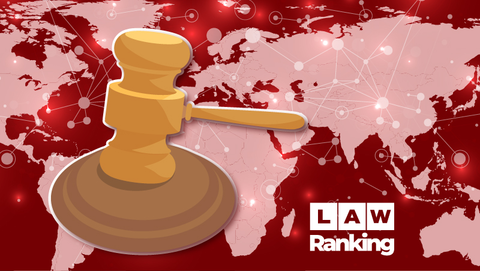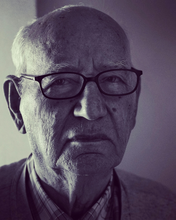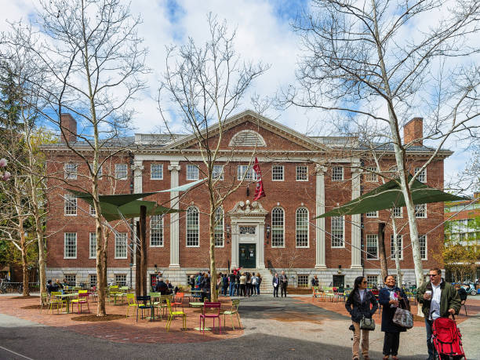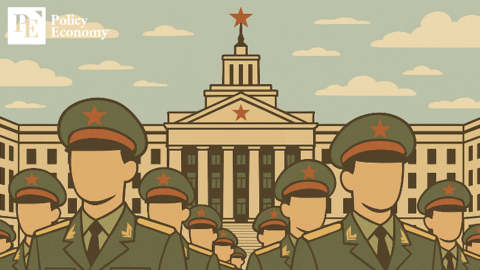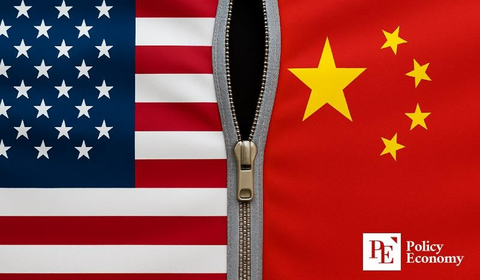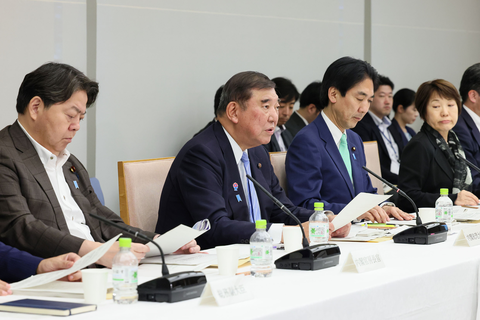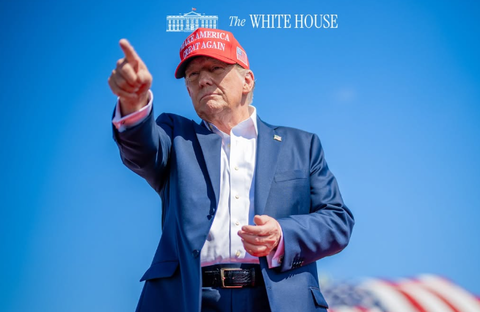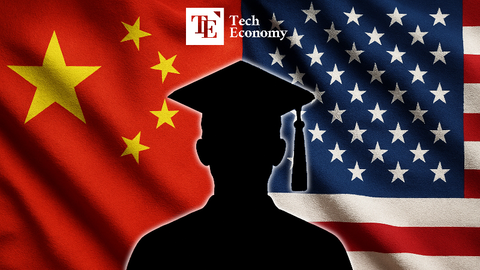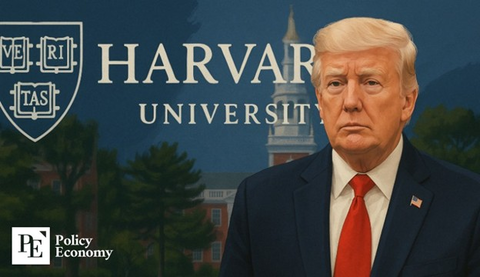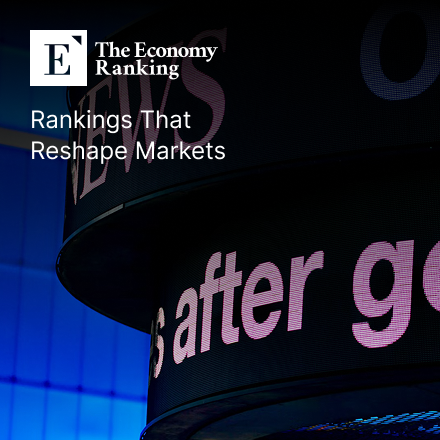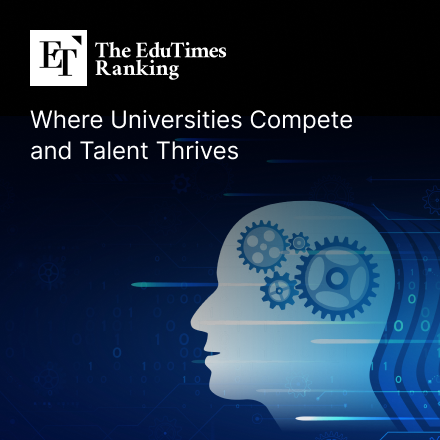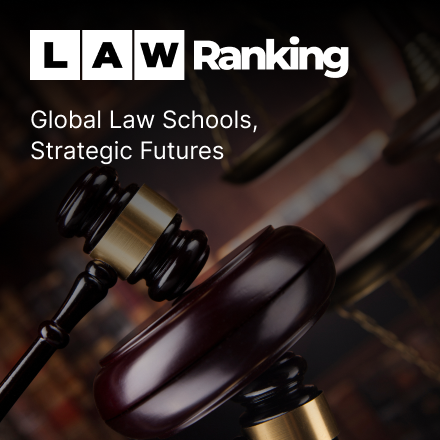Law -test 7
Input
Modified
Similar Post
Law -test 6
Input
Modified
Similar Post
Law -test 5
Input
Modified
Similar Post
Law -test 4
Input
Modified
Similar Post
Law -test 3
Input
Modified
Similar Post
Law -test 2
Input
Modified
Similar Post
Law -test 1
Input
Modified
Similar Post
Trump Orders Federal Agencies to Cancel Contracts with Harvard University
Input
Modified
Trump Intensifies Financial Pressure on Harvard Once Again Federal Government Moves to Block Foreign Student Enrollment Will the Backlash Against International Students Ultimately Hurt the U.S.?
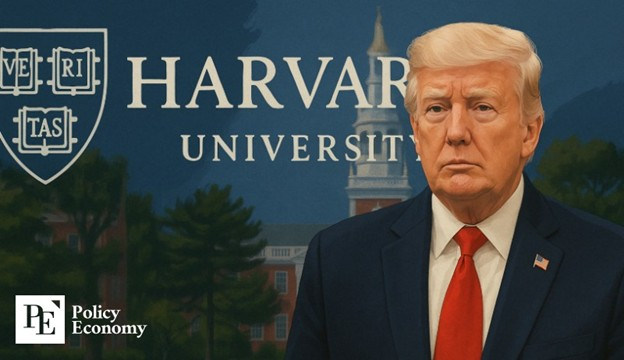
In a bold move that signals the intensifying ideological clash between the White House and elite academia, President Donald Trump has directed federal agencies to sever all contractual ties with Harvard University. This dramatic order comes on the heels of efforts to curtail the university’s ability to recruit international students, marking a widening campaign by the Trump administration to challenge what it views as politically biased practices within Ivy League institutions. As the confrontation escalates, Harvard finds itself at the epicenter of a larger cultural and political battle—one with profound implications for academic freedom, global education, and America’s soft power.
Federal Retaliation: Harvard Faces Contract Cancellations and Financial Pressure
On May 27, The New York Times reported that the U.S. General Services Administration (GSA) had sent a directive to all federal agencies requiring them to identify any active contracts with Harvard and submit formal termination or transition plans by July 6. This signals the federal government’s intention to unilaterally withdraw from partnerships with the university, a step described by some officials as unprecedented in modern U.S. academic policy.
According to NBC News and the Associated Press, Harvard currently holds approximately 30 federal contracts in sectors such as healthcare, national security, and education. The total value of these contracts is estimated at around USD 100 million. If terminated, these cancellations would deal a significant financial blow to the university’s research and operations. This move adds to a broader pattern of retaliation: earlier, the Trump administration revoked USD 2.7 billion in federal support previously allocated to Harvard and even urged the IRS to strip the university of its tax-exempt status.
The GSA defended the contract termination directive as a measure to “strengthen citizenship.” The administration claims that Harvard is in violation of the Supreme Court’s 2023 ruling banning race-based admissions policies. Moreover, it accuses the university of responding inadequately to reported incidents of harassment targeting Jewish students on campus. These allegations have become a cornerstone of the administration’s argument that elite universities like Harvard promote divisive ideologies and fail to uphold constitutional standards.

Campus Culture Wars and the Fight Over International Students
At the heart of the conflict lies a deeper ideological struggle. President Trump and his administration have frequently accused Ivy League institutions of harboring anti-Israel sentiment and fostering left-leaning political culture through initiatives like DEI—diversity, equity, and inclusion. These programs, once widely promoted as steps toward a more inclusive campus, are now targets of federal scrutiny and political attack. The administration argues that DEI efforts are ideologically biased and has called for their wholesale removal from federally funded academic institutions.
Harvard has firmly resisted these demands, asserting that such actions constitute a violation of academic freedom and institutional independence. The university’s opposition, however, has only provoked more aggressive responses. On May 22, the Trump administration notified Harvard that it would revoke its Student and Exchange Visitor Program (SEVP) certification—a necessary status for institutions that wish to enroll international students. Without SEVP certification, Harvard would be legally barred from admitting foreign students, a blow that would severely damage its global academic standing.
Harvard responded swiftly by filing for a preliminary injunction. The U.S. District Court in Massachusetts temporarily halted the government’s move, warning that the university could suffer “irreparable harm” if the SEVP decertification went into effect.
When that effort stalled, President Trump pivoted to a different tactic. On May 25, he took to Truth Social, claiming that “one-third of Harvard’s students are foreign nationals, including some from countries unfriendly to the United States.” He demanded that Harvard submit the names and countries of origin of all its international students—an extraordinary request that sparked immediate backlash. The university reportedly declined to comply, citing concerns over privacy and discrimination.
Undeterred, Trump doubled down the next day, announcing plans to reallocate USD 300 million in federal funds earmarked for Harvard and direct them instead to support vocational schools. This threat added yet another layer to the administration’s multifaceted pressure campaign—one that uses funding, regulatory status, and public opinion as weapons in an increasingly politicized battle over the future of higher education.
Global Consequences: Eroding U.S. Soft Power and Educational Influence
While the administration frames its crackdown as a necessary corrective to elite academic overreach, critics warn that these actions may backfire—undermining America’s long-standing position as a global education hub and diminishing its soft power. According to Harvard’s Office for International Affairs, 27.2% of the student body (6,793 students) are international students for the 2024–2025 academic year.
A breakdown of the university’s October 2024 data reveals that the largest contingent of international students comes from China, followed by Canada, India, South Korea, and the United Kingdom. These students are more than just learners—they are vital contributors to the U.S. economy, innovation pipeline, and international diplomacy.
The Washington Post reported that over 1 million foreign students enroll annually at U.S. universities, playing key roles in advancing research, technology, and entrepreneurship. Esther Brimmer, Executive Director of NAFSA: Association of International Educators, emphasized that many international graduates go on to power America’s startup ecosystems, while those who return home often become crucial diplomatic bridges between their home countries and the United States.
Economically, the impact is massive. NAFSA estimated that during the 2023–2024 academic year, international students contributed USD 43.8 billion to the U.S. economy, including spending on tuition, housing, transportation, and other living expenses. At Harvard alone, international students generated an estimated USD 384 million—a figure that underscores how deeply global talent is woven into the fabric of American higher education.
The fear among educators and diplomats alike is that restrictive policies and politicized rhetoric may drive top talent to other nations, weakening America’s influence not just in science and technology but in global thought leadership. Harvard’s battle, in this context, is more than an institutional dispute—it is a test case for the future of American higher education in a rapidly shifting geopolitical landscape.
Similar Post
Trump Cracks Down on 'Leftist Education,' Even Monitoring International Students' Social Media
Input
Modified
U.S. State Department to Pre-Screen International Students' Social Media Trump Threatens Harvard Financially After University Defies His Orders "Revenge for Youngest Son’s Rejection?" — Mockery and Speculation Spread

In a sweeping escalation of his administration’s ideological war on what he labels “leftist education,” President Donald Trump is rolling out aggressive new measures that directly target both international students and elite academic institutions. The government has suspended student visa interviews across the globe and is preparing to implement stringent social media surveillance for all future applicants. At the same time, a bitter clash is unfolding between Trump and top universities, particularly Harvard, with accusations flying, lawsuits emerging, and speculation growing that the president’s actions may be fueled by personal resentment as much as political doctrine. What began as political rhetoric has turned into official policy, carrying serious implications for academic freedom, immigration, and the international standing of American higher education.
Screening, Suspensions, and Social Media Surveillance
On May 27, the U.S. State Department issued a directive to American embassies worldwide to immediately halt the scheduling of visa interviews for international students and exchange visitors. The order applied to all F, M, and J visas, which are typically granted to students attending academic programs, vocational training, or exchange research. According to the department, this suspension is a preliminary step toward enforcing new procedures that will include the examination of visa applicants’ activity on platforms such as Instagram, X (formerly Twitter), and TikTok. These new guidelines, the department noted, would soon be released to all U.S. embassies.
Although the Trump administration has justified the decision by citing national security and the need to combat terrorism and antisemitism, critics argue that this is part of a broader attempt to purge “leftist ideologies” from academia. NBC News highlighted that President Trump has long accused universities of harboring left-wing bias, and the sudden halt to visa processing appears to be an extension of that ideological crusade.
Despite the administration’s rationale, the scope and implementation of the planned social media monitoring remain unclear. According to reports from Axios, the review will likely include applicants’ posts, likes, shares, and comments. However, there is widespread uncertainty about what type of content might raise red flags. Politico, for example, questioned whether simply posting an image of the Palestinian flag could subject applicants to additional scrutiny. The absence of clear standards has raised concerns even within the State Department, where some officials are reportedly frustrated by the vague nature of the guidelines and worry about the risks of arbitrary enforcement.
Elite Campuses Targeted Amid Rising Tensions
While international students are bracing for intensified surveillance and restricted access, elite U.S. universities are also feeling the weight of the administration’s pressure. The Trump administration has singled out Ivy League schools such as Harvard, Columbia, and Princeton, accusing them of failing to adequately respond to anti-Israel sentiment on campus. Officials have argued that Diversity, Equity, and Inclusion (DEI) programs embedded in these institutions promote ideological agendas and should be dismantled entirely.
Harvard has found itself at the center of the storm. On May 22, the U.S. government notified the university that it intended to revoke its certification under the Student and Exchange Visitor Program (SEVP), a move that would prohibit it from enrolling international students. In response, Harvard filed a motion for a temporary restraining order. The U.S. District Court in Massachusetts granted the request, ruling that immediate enforcement of the policy would inflict irreparable harm on the university. The legal victory was temporary but significant, highlighting the intensifying tug-of-war between academia and federal authority.
In the days that followed, President Trump escalated the conflict. On May 25, he took to Truth Social to demand a list of all international students currently enrolled at Harvard, along with their countries of origin. He claimed that one-third of Harvard’s student body consists of foreigners, including individuals from countries that, in his words, are “not friendly to the United States.” He insisted that the public had a right to know who these students were. The next day, Trump went further, announcing that he was considering redirecting $300 million in federal support originally designated for institutions like Harvard to vocational schools instead. The message was clear: elite universities could either fall in line with federal expectations or face financial consequences.

Barron and the Ivy League: Personal Feud or Policy?
As this high-stakes clash between the Trump administration and elite academia deepens, a new theory has emerged that paints the battle in a more personal light. Rumors have circulated on social media and in news outlets like the New York Post and The Economic Times suggesting that Trump’s aggressive stance toward Ivy League universities may be motivated, at least in part, by the alleged rejection of his youngest son, Barron Trump, from Harvard. Though unconfirmed, the theory has gained traction online and become part of the broader narrative.
One Facebook user noted that all of the schools Trump is now attacking—Harvard, Stanford, Columbia—were rumored to have declined Barron’s application. The post quickly went viral, resonating with those who believe Trump’s education policy is less about ideology and more about personal revenge. On X, another user demanded transparency from Harvard, calling on the school to release Barron Trump’s application and rejection letter to clarify the president’s motivations. Democratic Senator Sheldon Whitehouse added fuel to the speculation in April by posting on X, “I wonder how many Trumps have been rejected by Harvard?”
In response to the growing controversy, First Lady Melania Trump’s spokesperson, Nicholas Clemens, issued a statement to quash the rumors. He clarified that Barron had never applied to Harvard and denied claims that a representative had submitted an application on his behalf. Clemens confirmed that Barron began attending New York University’s Stern School of Business in September of the previous year. President Trump himself had spoken proudly of his son’s achievements, stating in an interview at the time that Barron had been accepted to multiple universities and had chosen NYU’s Stern School because it was “a great school.”
Despite these denials, the perception that Trump’s policies may be fueled by personal grievance continues to cast a long shadow over the administration’s actions. As ideological crackdowns blur with personal conflict, and as universities and courts push back against executive overreach, the battle over “leftist education” in the United States reveals itself to be far more complex than a mere political campaign. It is now a collision of power, ego, and the fundamental question of what role education should play in a democratic society.

